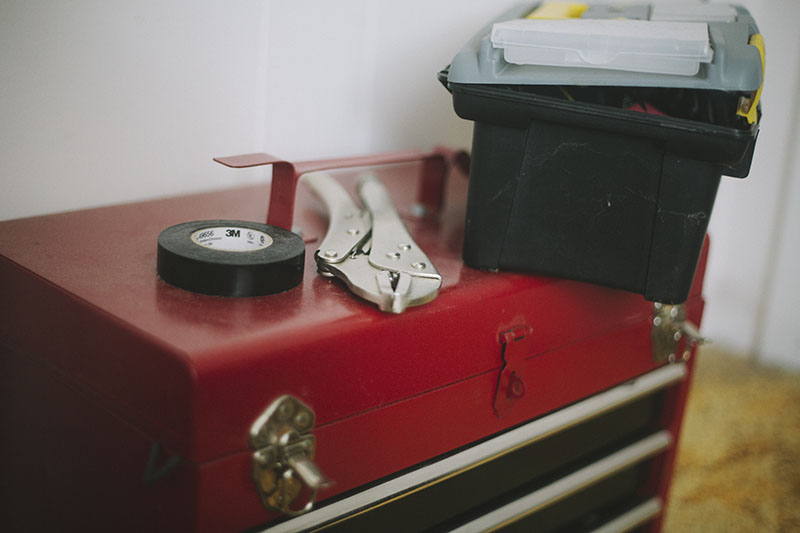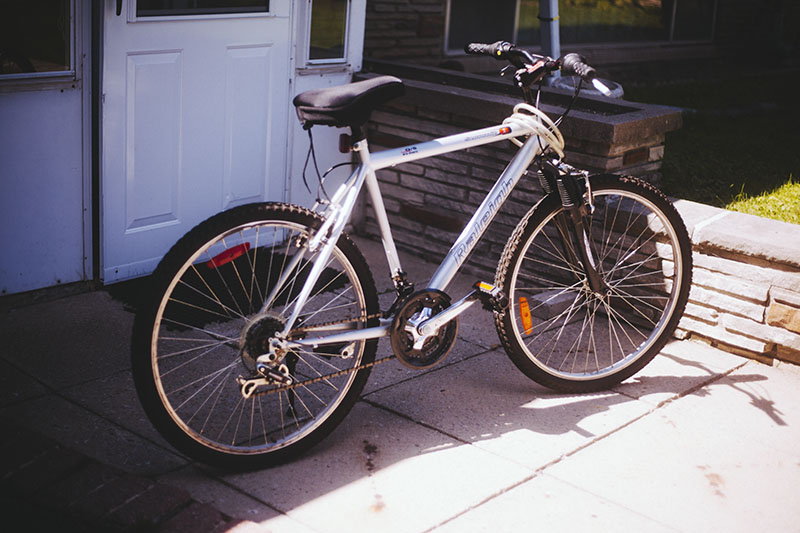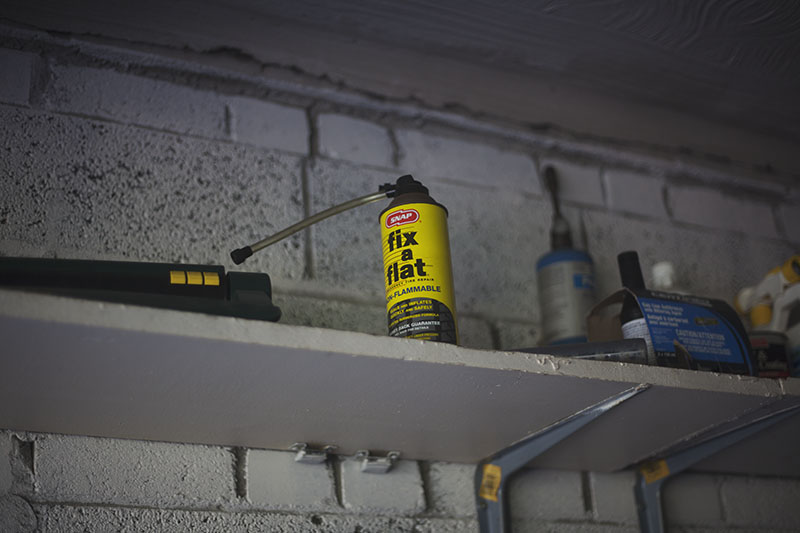Preppers often teach themselves self-sufficiency skills solely based on the premise that if the SHTF they’ll find themselves wishing they’d taken the time to learn those skills. Yet there are many self-sufficiency skills that, once learned, will actually start to help make preppers’ lives easier immediately. In the case of a doomsday, apocalypse, natural disaster, or national/international economic crisis, these skills will definitely play a vital role in aiding a prepper, but there’s absolutely no reason why these skills can’t begin working for a prepper from Day 1 all the way to the end.
The following are 10 self-sufficiency skills which, if you take the time to learn, will allow you to save a bundle on future financial costs and expenses. Saving money here and there can help you with other preps that may be financially demanding. Besides allowing you to create a safety net of stashed away money, just in case you lose your job for instance, extra money can help you to easily build up a stockpile, especially if you happen to be on a tight budget.
Without further ado, 10 self-sufficiency skills that, if learned, will save you a bundle of cash in the long run:

Self-Sufficiency Skills That Will Help You Save Money
1. Gardening
We all know why gardening is a wonderful way to save money: it’s a great way to cut down on your food bill. No news here, but the sooner you get started, the sooner it can start working for you.
2. Canning/Preserving
And of course what do you do when you’ve got all those fine fruits and vegetables growing in the garden and there’s just too much to eat? Learn to can and preserve. That way, you’ll be able to enjoy them for months and months to come.
3. Home Repair
You only have to be a homeowner for a little while to realize just how costly home repairs can get. If you can teach yourself even simple things, like how to unclog toilets or switch out broken doorknobs, you can save yourself quite a bit of money here and there. If you can teach yourself how to lay down your own roof, even better! Just be careful not to try anything too dangerous (you might not want to play with the electrical wiring unless you really know what you’re doing); remember, your health is more valuable than money in the bank – and health care fees are expensive!
4. Sewing
Although you may not be throwing money at a seamstress for patching up those holes in your clothes for you, if you learn how to sew, you’ll likely be willing to keep your clothes for longer. Patch ’em up and throw ’em back on if they’re still good otherwise.

5. Bicycle Riding
Now this one really helps if you’re willing to use your bike instead of your car: think of all the gas money you could save. Bike riding also increases your fitness level, and so will indirectly help reduce healthcare costs as well.
6. Wood Chopping
If you’ve got a fireplace in the house, being able to chop your own wood will help you to significantly cut down on heating costs in the winter. Of course you’ll need to find some wood to chop, but here’s to hoping there are some trees in your backyard that will be game. Like bike riding, chopping also increases fitness level, which reduces personal healthcare costs in the long run.
7. Cooking
If your cooking skills need a little brushing up (or are practically non-existent like mine are!), learning how to cook properly may end up saving you quite a lot of cash in the long run. Learning this skill will particularly benefit you financially if no one else in the family knows how to cook, or if the family prefers eating out because the meals at restaurants tastes better. Learn how to cook those special dishes at home and you can easily begin to reduce the cost of your restaurant expenditure.

8. Hairdressing
No matter how little you spend on haircuts, there’s always some money to be saved if you learn how to cut hair yourself. If you’ve got a big family, with lots of family members who need their hair cut often, this skill is likely to lead to significant savings. Sure, you might mess up the first time, but hair grows back, and once you’ve mastered the art of hairdressing, you may find you like your cuts better than cheap hairdressers’ cuts anyway.
9. Animal & Pest Control
Getting those pesky raccoons out of your shed or shooing the bats out of your attic may feel like quite an unpleasant job to have to muster, but if you can stomach dealing with your animal and insect issues on your own, you’ll be saving yourself a lot financially. Though you’ll definitely want to call someone if you have bed bugs, you can probably muster up the courage to deal with wasps and mice on your own, with a little help from Raid and some mouse traps that is.
10. Vehicle Maintenance
Although being a regular grease monkey would certainly lead to huge financial savings, you don’t have to know everything about your vehicle to save yourself a pretty penny. Learning how to replace your car’s tire, or even how to change the oil, is enough to save you some cash for years to come.

More Self-Sufficiency Skills That Save?
What are some other self-sufficiency skills that you’ve found help you to save? Do you use a good number of the ones listed above to help you keep your financial expenses low from month to month? Let me know in the comments.
i once asked my Mum why she kept a load of tinned food in the sideboard, she replied “Just in case”. I didn’t really understand until I got older and found out that Mum was born 1920 and lived in the poorest part of the city. Her dad was injured on the docks and couldn’t work and died when she was eleven leaving my Nan and two girls to fend for themselves. WWII arrived and Mum survived the blitz ( Hull was the second most bombed city in the UK after London. Never mind Coventry. It was only referred to as ” A town on the NE coast was bombed last night”. Provisions were rationed, indeed I still have my own ration book from 1952. When we moved to Norfolk we went through a patch of Dad being unemployed and Mum begged a rabbit off a gamekeeper to feed me.( I was 4.) And skinned and cooked it . She taught me that if I coudn’t afford it I should save until I had the money. I have never been in debt and have some provisions “just in case”. I envy you Americans with your wide open spaces and your right to protect yourselves.
I envy Americans that, too, but after having recently moved to the UK (last year, moved from Canada), I have to say that the UK has grown on me to the point where I wouldn’t want to be anywhere else, even from a prepper perspective, not right now at least.
Your mild weather makes the UK, in my opinion, an absolutely perfect place for wilderness survival. The winters in Canada were a terrible thing to have to worry about. If you ever needed to bug out, good luck. Also your rain – you don’t need to worry about dehydration if you’re out in the wilderness here, imagine surviving in a desert in the States, that’s my idea of a nightmare. The houses here are built to last, while those in America, especially the new ones, are made of drywall and glue. Here – your whole house could burn to the ground – still you’d have a skeleton, something to work with if you wanted or needed to. In Canada and America, that house even so much as floods into the first level and it’s got to be torn down and replaced completely.
Some countries are much better than others for surviving and prepping in, but I think Canada and the States and the UK are all very good places to be if there’s an emergency in their own ways. If only we could add the right to protect ourselves here, I’d be happy as a clam.
I remember my grandparents trying to show me all kinds of things when I was a kid. From hunting to gardening, to butchering hogs and chickens. I am really sorry today that I didn’t pay more attention to them. I had to relearn most of these as an adult, and am still learning. Thanks for an awesome article!
There’s a tonne I wish I’d asked about and taken the time to learn from my grandparents as well. So many lost skills that, yes, you have to sort of learn from scratch if you do want to be as prepared as you can be.
My Parents were dirt poor farmers from a European Ag. District that emigrated here in 59′
Grandparents came in 69′ and their self sufficiency skills were awesome. They made just about everything they needed for the home. A few skills they taught me..or i have seen.
My Grandfather wove baskets from red willows and made furniture from wood scraps with woven reed seats and backs. I still have 2 of his baskets. He made brushes and brooms and carved kitchen utensils from wood, spoons and spatulas. Even made cardboard hats he would wear while out in the sun.
My father was an avid fisherman and while some would not say it is a skill, i do. Cleaning and catching smoking fish is a valuable asset..and I live beside a Lake now.
My father made wine every year and this place here is abundant with chokecherry, apple, saskatoon and sarsparilla. I used to distill the batches that he did not like into everclear. I was surprised he kept a 26 from a batch i made and never touched, and he has passed now. He also learned the art of sausage making and dry curing ham and proscuitto. He made knives with discarded rail-saw blades from the CNR.
He taught us how to raise pigeons and rabbits for food as chickens banned from the city
My mom is 86 and still bakes bread, kneads it by hand and has been doing it for 80 years. I also make simple mediterranean flatbreads by hand and grill them..
A few ideas of things that people can learn to be more free of the supply chain
.
I love this list! I definitely think that fishing is a skill. It certainly doesn’t come easy to all of us! And it’s of course very handy for getting some healthy, cheap dinner on the table; just like hunting.
I do feel sorry that a lot of the self-sufficiency/do-it-yourself attitude that many of our grandparents and great-grandparents had seems to have been lost over generations. Truly, I can’t possibly blame their generations for not “passing on” the skills that they had – I’m sure they tried, but no one was interested in learning considering technology that made life easier. I’m sure most wouldn’t even know how to do laundry by hand anymore!
I would take it one step further and combine fishing with farming, or aquaponics. It uses less water than conventional farming, which is great if you’re off grid or have to pay for water, and it can be done relatively easily. I would also like to take up blacksmithing. Knowing how to fix tools, or chains, or make your own knives (which could be used or sold or bartered) could be very useful. Also, I want to get more into woodworking and glass blowing. Love your articles, please keep writing. Have a nice day.
Aquaponics is an insanely useful skill to have! Honestly wish I had some land and the patience to try it out myself. :)
Blacksmithing, woodworking, and glass blowing: I feel like if you learned all those + how to hunt/fish/farm, you’d basically be your own one-man town!
Thanks for the huge compliment about the articles. Will certainly keep writing, and hope that you keep reading as well! :)
How about hunting? Being able to hunt and clean game animals for food would be a good skill to have.
Of course!
what about being able to butcher meat? This is one I plan on learning.
That’s a great one!
Hell yes! I got these down, thanks to a strong background in self sufficiency by my family. I am even laying the groundwork for a root/storm celler to be built over the next few summers.
Very nice work! And awesome job on starting up a root/storm cellar. That’ll be an amazing prep.